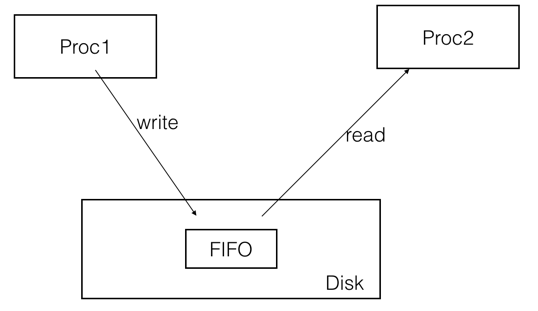FIFOs
FIFOs are sometimes called named pipes. Unnamed pipes can be used only between related processes when a common ancestor has created the pipe. With FIFOs, however, unrelated processes can exchange data.
Once we have used mkfifo or mkfifoat to create a FIFO, we open it using open. Indeed, the normal file I/O functions (e.g., close, read, write, unlink) all work with FIFOs.
When we open a FIFO, the nonblocking flag (O_NONBLOCK) affects what happens.
- In the normal case (without O_NONBLOCK), an open for read-only blocks until some other process opens the FIFO for writing. Similarly, an open for writeonly blocks until some other process opens the FIFO for reading.
- If multiple process block on read, and one process write message into FIFO, will trigger all the reader unblock, but only one process and read content
- If O_NONBLOCK is specified, an open for read-only returns immediately. But an open for write-only returns −1 with errno set to ENXIO if no process has the FIFO open for reading.
There are two uses for FIFOs.
- FIFOs are used by shell commands to pass data from one shell pipeline to another without creating intermediate temporary files.
- FIFOs are used as rendezvous points in client–server applications to pass data between the clients and the servers.
